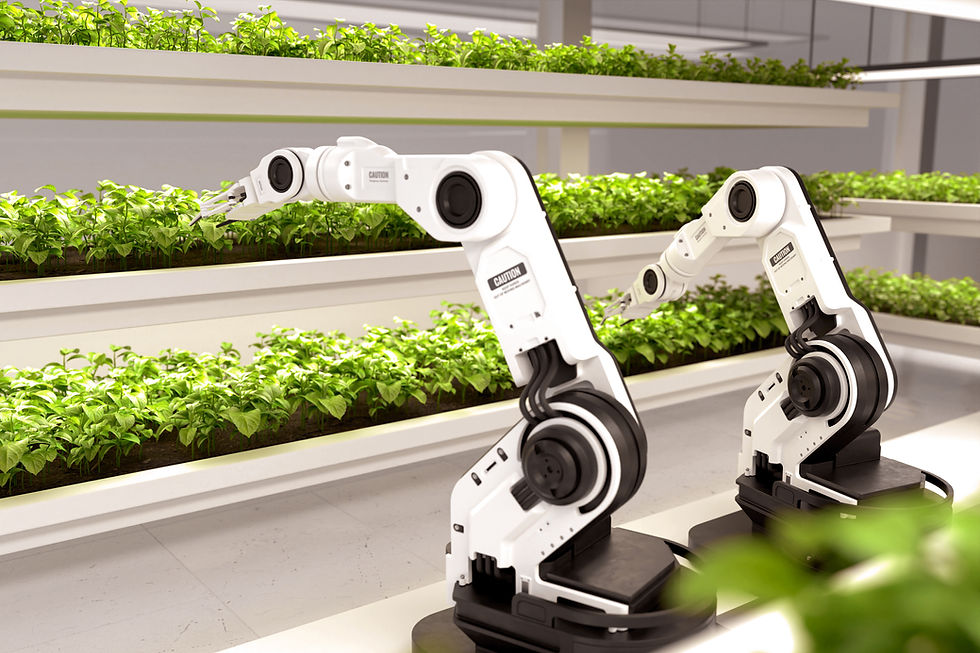The role of AI in achieving the SDGs
- occamobservatory
- 22 nov 2023
- Tempo di lettura: 3 min
By Vittoria Acampora
The advancements in AI hold great promise for addressing the multifaceted challenges laid out by the Sustainable Development Goals (SDGs). Among the research papers and initiatives that have emerged over the last few years, it is worth mentioning the SDG AI Repository, managed by the UN's International Telecommunication Union (ITU) agency, the AI for Sustainable Development Goals (AI4SDGs) Think Tank database, and the University of Oxford's Research Initiative AIxSDGs.

Sustainable Development Goal n. 2, Zero Hunger, represents an example of this emerging trend, as AI is already used to analyze diverse data sources, such as weather, satellite, demographic, and socio-economic data, to identify hunger in developing nations. In this regard, global organizations like UN agencies, the World Bank, NGOs, and data institutions collaborate in the Famine Action Mechanism (FAM), focusing on data-driven efforts in food security risk analysis, anticipatory financing, and programming. Additionally, the Group on Earth Observations Global Agricultural Monitoring Initiative (GEOGLAM) enhances food security by offering timely agricultural data.
Emerging concepts like precision agriculture and smart farming use sensors, advanced technology, and AI to optimize crop yields while conserving resources. Smart farming leverages digital technology, IoT sensors, drones, robots, and AI to enhance agricultural production, supported by programs like Horizon 2020 funded by the European Commission. Within this context, OCCAM actively contributes to the Program through the EWA BELT Project(GA862848), aimed at promoting food production systems in six sub-Saharan African countries.
As the previous one, within Sustainable Development Goal n. 3, Good Health and Well-being, the combination of data, AI, and healthcare holds immense potential for reshaping the field. AI accelerates the discovery of treatments, vaccines, and side effects prediction, it supports clinical decision-making by assisting in diagnosing conditions like cancer, COVID-19, and tuberculosis in radiological tests. Furthermore, AI also plays a crucial role in sharing information about public health policy through multi-dimensional data analysis. Precision medicine, encompassing predictive, personalized, and preventive approaches, heavily relies on AI applied to various data types, from genomics to behavior and environmental factors.
Quality education is SDG n. 4, and AI Intelligence offers promising solutions to the challenges related to education for all, for instance enabling personalized learning experiences, and replacing one-size-fits-all education with tailored approaches. Intelligent tutoring systems, like chatbots or robots, customize content and teaching strategies and support students with disabilities. Yet, potential AI risks in education, such as privacy breaches or impacts on well-being and development, require thorough examination.
Ensuring access to affordable and clean energy, as stated in SDG n. 7, is a global challenge, as around 13% of the world's population lacks electricity and many still use highly polluting fuels, posing environmental and health risks. AI is a key player in implementing SDG n. 7: smart grids rely on AI to predict energy demand, optimize maintenance, ensure reliability, and detect failures or cyberattacks. AI is also finding applications in nuclear engineering, using machine learning and deep neural networks to predict nuclear reactor behavior, enhance maintenance, and improve fire hazard models. Furthermore, data-driven AI methods are essential for creating efficient renewable energy systems, like wind, solar, geothermal, hydro, ocean, bioenergy, and hybrid systems.
Sustainable cities and communities, SDG n. 11, address the urbanization challenges, such as inequality, overcrowding, energy consumption, pollution, and inadequate living conditions. Data-driven AI techniques play a vital role in addressing these challenges, enhancing urban planning and informing decisions about transportation, traffic management, and mobility predictions. Intelligent transport systems in cities benefit from AI, making public transportation safer and more efficient. Furthermore, AI is increasingly integrated into commercial vehicles, improving safety by detecting traffic, and pedestrians, predicting driver actions, and aiding in adverse weather conditions.
Within this context, smart cities heavily depend on AI to achieve their goals: urban projects analyze data from IoTdevices to optimize energy consumption, recycling, pollution control, and waste collection. Urban safety is another sector where machine learning methods are applied to detect and predict crime hotspots. In this context, Urban AI think tanks have emerged to advocate for ethical AI governance and sustainable use in cities, focusing on developing AI systems that respect global cultural diversity to make cities sustainable and uphold the social contract.
Source:
Institute of Humanity-centric AI (ELLIS Unit Alicante Foundation), Artificial Intelligence for Social Good: the Way Forward.




Commenti